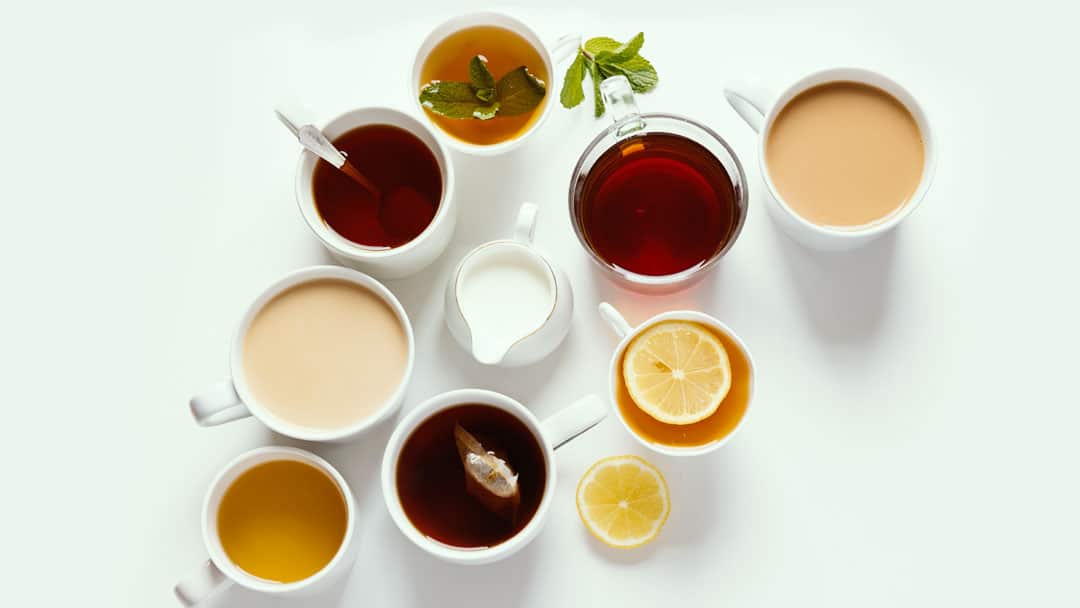What Can You Drink On a Carnivore Diet? (Full List)

As an Amazon Associate we earn from qualifying purchases made on our website. If you make a purchase through links from this website, we may get a small share of the sale from Amazon and other similar affiliate programs. You can read our complete legal information for more details. By using this site, you agree the information contained here is for informational purposes only. For specific medical questions, consult your doctor. NO information on this site should be used to diagnose, treat, prevent or cure any disease or condition.
The carnivore diet purists will say that the carnivore diet consists solely of eating animal products, animal blood, and water. (The animal blood was for theatrics, but I’m sure someone out there is drinking it like the Maasai Tribes.)
Most will say these drinks are absolutely carnivore diet approved; Water, Water with a Sugar-Free Electrolyte Mix, and Bone Broth. Yet Milk, Coffee, and Tea are controversial, which we discuss below.
Water
This is the obvious no-brainer. I’m sure everyone can agree that water is the essential drink of all diets, but some people don’t know that not all water is equal.
Most people within the health and wellness industry will agree that municipal city water is inferior to all-natural spring water or even reverse osmosis or distilled water.
Spring Water (Untouched by Humans)
You may be ahead of the curve if you can harvest water from a naturally occurring spring tested for purity and harmful microorganisms.
This type of spring water can have potentially healthy levels of minerals and nutrients and is free of fluoride and chlorine, which I’m sure we could all use less of.
If you are a city resident, you may be able to find people to go wherever a spring is located and harvest the water for you. Or make a trip every few weeks and stock up. I know of a few springs and stock up when I can, using 5-gallon all-glass or smaller 2.5-gallon bottles.

Need help to find a spring? Check out Find A Spring.
Warning: don’t be naive and assume all spring water is safe and free of potential threats like parasites or toxins. Due your due diligence and have the water tested before drinking. I’ve had giardia, and that sucks.
Alive Water
Here in Los Angeles, California, we have a company that delivers water from a spring free of chemicals, unfiltered, and in glass bottles. This fantastic company is Alive Water.
The cool thing is that they have expanded into other parts of California, Texas, and Florida. I’m told they will be in different states shortly too! Go to their website and see if they are in your area.
Use this link to receive 11% off your first order, or type in WILD at checkout.
The company, Alive Water, says, “we provide water to homes and businesses which aren’t typically located to nearby springs. We honor earth’s natural gifts without the notion they need to be altered.”
Sparkling Water
Some carnivore diet proponents recommend sticking to flat water without bubbles, but others say it doesn’t hurt to have sparkling water now and again. I prefer Perrier or San Pellegrino when the budget allows for it.
These brands have been around for ages and say they have many minerals and nutrients otherwise not found in city-treated water.
Distilled and Reverse Osmosis
Some folks in the health and wellness space say drinking distilled or reverse osmosis-style water will leech other minerals and nutrients out of your bones. However, according to Dr. Ken Berry, there isn’t sufficient evidence to support this claim. If you can find some, please email me.
We have a reverse osmosis system where I live, and I believe it to be adequate and superior to city water. It’s from Perfect Water, and the system is from the Home Master Series.
My only gripe is that you can only fill up half a medium-sized water bottle before recharging, which takes a few minutes.
Electrolyte Water Mix
Some Carnivore Diet doctors will warn the newbie dieter about the potential flu-like symptoms associated with the adaptation period.
Some suggest increasing your electrolyte levels to combat this. Usually, the recommended ingredients include Sea Salt, No Salt (potassium), and Magnesium.
People that fast also use this concoction to help them stay hydrated. Here is a recipe from Dr. Ken Berry.
(If you are trying to keep strict, carnivore, disregard the lime juice, stevia/sweetener, and apple cider vinegar.)
- Quart/Liter of water
- Juice from 1/2 lime/lemon
- 1/2 Tablespoon Bragg Apple Cider Vinegar
- 1/2 Teaspoon of Nu-Salt (potassium chloride)
- 1/2 Teaspoon of Sea Salt (I prefer Redmond Sea Salt plus 15% off)
- 5-10 drops of organic Stevia extract (I never use Stevia anymore, but it may help if you are weening off sweets)
- Add some magnesium, about a teaspoon. Warning: too much can cause disaster pants as it has laxative qualities.
- Fill the rest with either sparkling water or flat water
I consistently add electrolyte mixes to my water daily. Sometimes before I work out or when I wake up.
Pre-Made Mix
To save time, pick up some pre-made electrolyte mix from Redmond Real Salt. This company is super legit and makes fantastic, high-quality products. Their electrolyte mix is called “Re-Lyte,” and this is what’s in it:
- 1000mg Sodium
- 500mg Potassium
- 1585mg Chloride
- 75mg Calcium
- 60mg Magnesium
These come in 3 flavors. The “Unflavored Raw” is more carnivore diet compatible as it doesn’t have Stevia or added flavor extracts.

You can use the checkout coupon “WILD” to get 15% off, or just use this link here: Redmond Re-Lyte.
Bone Broth
Pretty much all carnivore diet proponents agree that bone broth is a significant player when it comes to drinking. Bone broth has massive amounts of bioavailable minerals, nutrients, and collagen.
Most health experts agree that the collagen from bone broth can help with your joints and potentially reduce inflammation.
Also, if you are new to the carnivore diet, you may experience some unwanted adaptation symptoms similar to the flu. Some speculate that this is due to the body’s transition from being a sugar burner to a fat burner and that your body could be expelling too many minerals and electrolytes from your body.
Both ketogenic and carnivore diet proponents recommend adding bone broth to your diet to help replenish much-needed minerals and electrolytes and potentially alleviate some of the flu-like symptoms.
Bone broth for those on the pure carnivore diet does not include vegetables like carrots or celery, as some people will say these vegetables have unwanted anti-nutrients and other potentially harmful naturally occurring plant pesticides.
My recipe includes only water, preferably spring water, Redmond Sea Salt, and a little Apple Cider Vinegar, which I’m told helps pull out nutrients from the bones and, of course, bones (usually grass-fed).
I fill my Crock Pot with those ingredients and let it simmer for at least 12 hours.
Also, I never throw out the fat that accumulates on the top. That’s the good stuff! You can take it off the top and use it to cook with later.
Milk
Here is where the controversy begins. Some proponents say milk is all good if you can tolerate it, and others believe this is a “no-no,” which can potentially lead to inflammation, insulin-related issues, and/or disease.
Let’s see what could be wrong with milk or at least what some doctors believe to be wrong with it.
Lactose
Some people can tolerate lactose, and others not so much. But what is it? Lactose is a sugar found in milk containing glucose and galactose.
The ability or inability to digest lactose is from our genes. Some people have genes that handle it, usually people with ancestors from a herder lifestyle.
Casein
Casein is a protein found in milk, yet it’s very similar to the protein gluten. For some people, gluten can lead to gut impermeability and autoimmune challenges.
I’ve read that functional medicine doctors usually advise patients to stay clear of milk and casein to clear up their stomach and autoimmune issues.
Cancer Issues
Some researchers have said that milk contains a compound called betacellulin, which plays a part in cancer cell growth.
The caveat is that other researchers have said that milk also contains conjugated linoleic acid, which has been shown to have anti-cancer abilities.
Linoleic acid comes from milk fat and is more abundantly in the raw grass-fed type.
Dr. Chris Masterjohn has said that milk can be more harmful when the proteins are separated from their natural fat. Basically, non-whole milk styles like skim milk and 1% fat. The unadulterated milk appears to be way better.
Insulin Issues
Mark Sisson speaks at length about the ability of milk to increase insulin levels and create problems.
However, the caveat is that it may not be as bad if you work out and lift weights.
Here is the post by Sisson explaining this in more detail.
Weight Gain
If you are trying to lose weight, milk may be one of the items to leave off your shopping list.
Because it raises insulin levels and contains carbohydrates, it may hamper your ability to shed pounds.
An 8-ounce cup of milk contains about 12 grams of carbs, mainly from the lactose, that sugar we discussed earlier.

Can Milk be good for you?
Milk does have some positives as well. Researchers have identified that Vitamin K2 and Vitamin A are great for health.
Doctors say K2 helps combat chronic disease and tooth decay, helps heart and bone health, potentially reduces heart disease, helps osteoporosis, and may help fight cancer.
They also say Vitamin A can help with your immune system, promote babies’ healthy development, and help with vision.
Milk also contains a hefty list of vitamins and minerals like Riboflavin, Calcium, Phosphorus, Vitamin D, Pantothenic Acid, Potassium, and Niacin.
Raw Milk
Your run-of-the-mill supermarket milk is probably pasteurized and homogenized. This means it’s been run through a screen and heated up to reduce the number of harmful pathogens.
This also means your milk can be less healthy and not as optimal. Some people also say it’s easier for them to digest raw milk.
This website, RealMilk, has a tremendous amount of info regarding raw milk.
When I add milk to my diet, it has to be raw.
Coffee
The carnivore diet purists will say that you shouldn’t drink coffee on the carnivore diet, and they bring up some great points.
Coffee comes from coffee beans from the plant kingdom and not the animal kingdom.
Coffee contains caffeine which is technically a drug and potentially addictive. One cup has anywhere between 30 and 300 milligrams of it.
Caffeine can have these unwanted side effects like these:
- Anxiety
- Adrenal Gland Stress
- Cortisol Increase
- Increase Blood Pressure
- Panic Attack
- Sleep Issues
- Heart Palpitations
I put a lot of work into making a post on coffee and the carnivore diet called “Can You Drink Coffee on the Carnivore Diet?” Check it out if coffee is a big concern for you!

Moldy Coffee
Some inferior brands of coffee can test positive for mold. Mold has a byproduct called mycotoxin, which has been shown to cause some adverse effects in humans.
Mycotoxins also have carcinogenic components called Aflatoxin B1 and Ochratoxin A. Definitely not good!
If you’re not yet ready to drop coffee off your shopping list, you will want to be sure you are getting a super high-quality, mycotoxin-tested brand. My fave brand that does that is KION.
KION is about as high-quality as you can get, plus they offer our readers a 10% discount on first orders, a 15% discount on bundles, and a 20% discount on subscriptions.
Just use this link or type in WILDLUMENS at checkout.
Coffee is Good?
Some people say coffee has some nutritional benefits. Coffee is abundant in antioxidants, and some researchers say they can play a part in reducing disease.
However, some researchers say this isn’t so and that antioxidants are overhyped.
Coffee does have vitamins. This is what you would find in an eight-ounce cup:
- Vitamin B1 2% of DV
- Vitamin B2 11% of DV
- Vitamin B3 2% of DV
- Vitamin B6 6% of DV
- Folate 1% of DV
- Phosphorus 1% of DV
- Magnesium 2% of DV
- Potassium 3% of DV
- Manganese 3% of DV
Social Aspect
I believe coffee has a tremendous social aspect in that it’s great to meet friends at coffee shops and use it to get inspired to write. There is nothing like a great conversation about the carnivore diet over a cup of coffee.
Carnivore Coffee
If you want to be a strict carnivore, then by all means, take coffee out of your equation. There are perhaps some health benefits you can experience without the complication of coffee.
When I worked with a functional medicine doctor, I took coffee out of my diet and benefited greatly from reduced anxiety, better sleep, and lower cortisol.
Tea
Tea is essentially in the same boat as coffee regarding the carnivore diet. The purists will say to remove it, and others will say keep it if it’s what you really enjoy.
There has been a tremendous amount of epidemiological studies showing populations that drink tea have higher lifespans. However, these studies can’t prove causation.
Some researchers speculate that tea is potentially healthy due to polyphenols, amino acids, and caffeine. Others have said drinking tea can have potential benefits for heart health, weight loss, cancer prevention, and dental health.
The negatives are also similar to coffee in that tea contains natural pesticides, man-made pesticides, potentially fluoride, unwanted alkaloids, and glyphosate.
For a more comprehensive review of tea and its application within the carnivore diet, I suggest checking out “Can You Drink Tea on the Carnivore Diet?”

Alcohol
Alcohol and the carnivore diet don’t mix. If you are going carnivore, I’m pretty sure it’s for health reasons and living optimally.
Alcohol is the exact opposite! It has significantly few benefits with regard to diet and health.
Flat-out alcohol is a drug and one of the reasons we have so many psychological and health problems throughout the world.
Researchers have so many negatives, like alcoholism, dementia, blackouts, hangovers, liver problems, brain shrinkage, and contribute to obesity. That’s just a few of the problems!
Cheap Date Style
When you go carnivore, you essentially eliminate all carbohydrates and glucose. With no glucose in your body from carbs, your metabolism is going full blast.
As soon as alcohol comes in, it is metabolized quicker hence getting drunk fast and on less alcohol.
Willpower
Sticking to any diet requires willpower. When you drink, your willpower is lessened, and you just may find yourself at a taco stand munching on non-carnivore-approved burritos at 4 am.
If You Do Drink Alcohol
If you decide to throw a few drinks back, there is a hierarchy on what’s better. Most diet and nutrition advocates will say to stick to gluten-free hard liquors and not mix your drinks with mixers. Keep it on ice or mix it with water.
Mixers have copious amounts of sugar.
Apparently, wine is next and inferior to, say, vodka due to the heavier amount of sugars and additives. Plus, wine is susceptible to mold, kind of like coffee and tea.
Beer is in the last place as it contains ingredients from the grain family. If you are going carnivore, it’s probably so that you can get away from grains. These grains also have gluten, a major factor contributing to autoimmune and gut issues.
Beer is also loaded with carbs and sugars. Definitely not cool.
If you want a powerhouse of information on how alcohol and the carnivore diet don’t mix, you must check out this article, “Can You Drink Alcohol on the Carnivore Diet?”
Conclusion
If you want to practice a carnivore diet like a purest, your only drink choices are water, water with electrolytes, and bone broth.
Some people have been able to add milk to their diet without problems, while others are straight-up allergic to it or find themselves with unwanted health issues if they drink it.
The absolute no-gos are things like soda, kombucha, flavored soda water, apple cider vinegar, and alcoholic drinks. Just ask yourself, does the drink contain synthetic ingredients or plant-based ingredients? If the answer is yes, it’s not carnivore approved.
If the carnivore diet is new to you, I suggest reading this article, “The Carnivore Diet 101: A Meaty Resource,” or buying one of these two books by two of the biggest proponents of the carnivore diet community.
Carnivore Discounts
- Redmond Real Salt and Re-Lyte Electrolyte Mix (15% Discount)
- White OakPastures Regenerative Farmed Meat (10% Discount)
- Carnivore Crisps (10% Discount)
- Live Water Glass Bottled Spring Water (11% Discount)
Disclaimer: I’m not a doctor or dietician or nutritionist. Consult with and ask your doctor about any diet or medical-related questions. No information on this site should be used to diagnose, treat, prevent, or cure any disease or condition.



